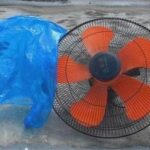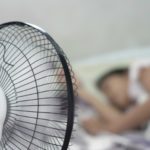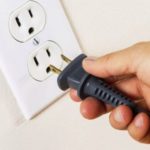The installation of an exhaust fan is essential not only for adding a touch of elegance to your space but also for improving air quality. In today’s modern living spaces, exhaust fans are becoming an integral part of the interior design and a necessity. However, if not properly maintained, these fans can also be a fire hazard.
A fire incident at a Beer – Club in Cau Giay, Hanoi, is a classic example of the potential dangers. The fire destroyed the entire property, and the culprit was identified as the exhaust fan, which had not been cleaned or maintained for several months. Fortunately, the authorities arrived in time to extinguish the blaze, and there were no casualties.
Similar incidents have occurred in other countries, such as China, where a bathroom explosion damaged toilets, sinks, and other fixtures. Luckily, there were no casualties in this incident as well. The investigation revealed that the explosion was caused by a faulty exhaust fan.
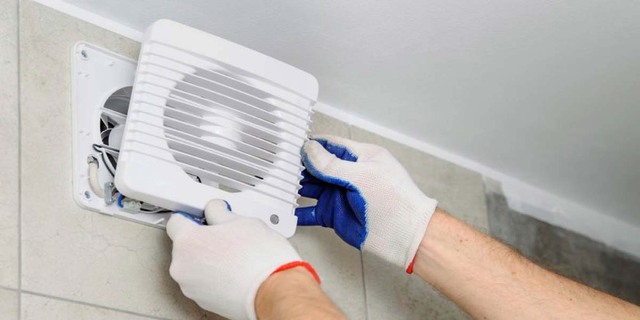
Photo: Internet
According to PGS.TS Nguyen Truong Luyen, a former official at the Institute of Technical Physics (Hanoi University of Science and Technology), the risk of electrical short circuits and fires from exhaust fans increases with prolonged use and improper installation. Therefore, it is crucial to regularly inspect and maintain these fans to ensure they are functioning correctly.
Exhaust fans are typically installed in out-of-sight locations, such as high ceilings, which makes it easy to neglect their maintenance. Moreover, people often assume that exhaust fans do not require cleaning since they help remove dust and pollutants from the environment.
However, just like any other fan, exhaust fans need regular cleaning to function optimally and prevent overheating, which can lead to fire hazards, especially in the kitchen, where oil and grease can build up on the fan blades. If the fan is not properly maintained and cleaned, it may not work efficiently, leading to a potential fire hazard.
Notes on cleaning exhaust fans
According to experts, it is recommended to have your exhaust fan inspected and maintained periodically by a professional. Ideally, you should have it serviced at least once a year.
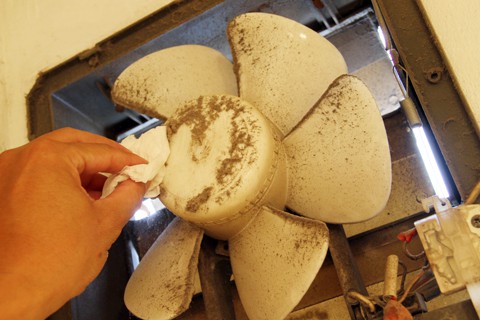
Exhaust fans require regular cleaning
If you choose to clean the exhaust fan yourself, here are some important tips to follow:
+ First, turn off the power supply to the fan. Depending on the installation, you may need to switch off the circuit breaker or unplug the fan from the power outlet.
+ Once the power is off, remove the external cover of the exhaust fan. As it is typically installed in a high and hard-to-reach place, you will need a ladder or a sturdy chair to access it safely. It is also helpful to have a dust catcher to collect any falling dust during the cleaning process.
+ Carefully detach the fan from its mounting bracket to avoid dropping it from a height, as this could damage the fan blades and affect its performance.
+ Use a vacuum cleaner or rinse the fan under a faucet, and then gently wipe it with a soft cloth to remove any remaining dust and dirt. You can also use a mild soap solution to clean away stubborn grime. For the fan’s exterior, a soft cloth will suffice. Ensure that the blades are dry before reassembling the fan.
In the case of exhaust fans in greasy kitchen environments, you can use sawdust for cleaning. Wrap a thin cloth around the sawdust and gently wipe down both the interior and exterior of the fan and its blades to remove the oily residue. For hard-to-reach areas, use a cotton swab to clean effectively.
























